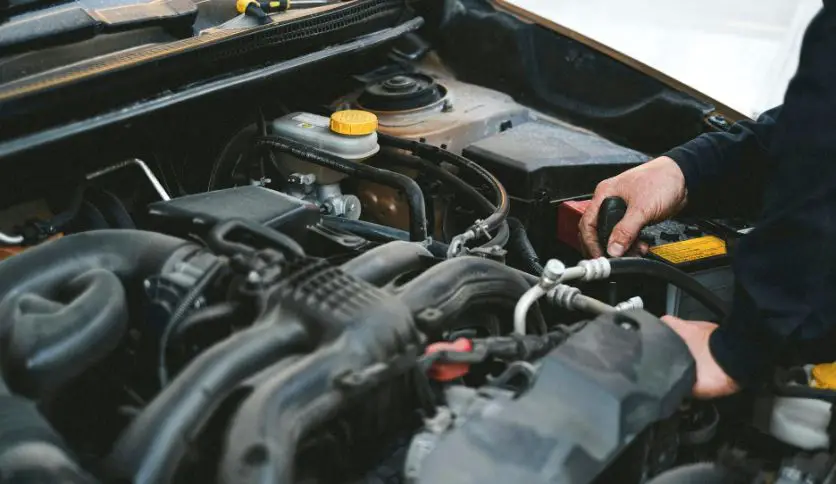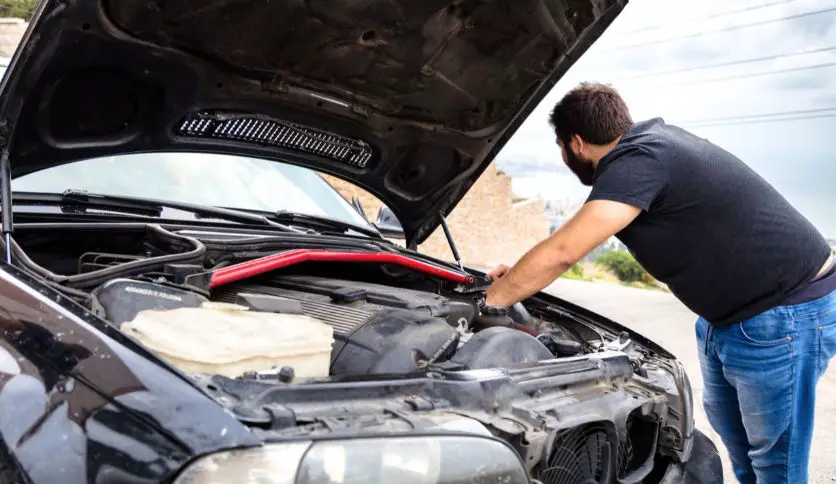Auto repairs are procedures to fix and maintain vehicles, ensuring optimal performance. Auto repairs are crucial for maintaining the overall functionality of vehicles.
Whether routine maintenance or fixing unexpected issues, these procedures are essential for keeping cars, trucks, or motorcycles running smoothly. Auto repairs cover many services, from changing oil and replacing brake pads to fixing engine problems or electrical glitches.
By addressing these issues promptly, drivers can prevent further damage and increase their vehicle’s lifespan. It is important to stay informed about common automotive problems, understand the signs of trouble, and seek professional help. With proper maintenance and timely auto repairs, motorists can enjoy safe and reliable transportation.
Contents
Essential Knowledge For Diy Mechanics
Are you interested in learning about auto repairs? As a DIY mechanic, having a strong foundation in understanding vehicle systems and components is essential. By familiarizing yourself with how different parts of your vehicle work together, you can confidently tackle various repair tasks.
One important aspect of auto repair is having the right tools. Building a well-equipped home garage setup enables you to work efficiently on your vehicle. Some must-have tools include wrenches, sockets, pliers, screwdrivers, and reliable jack and jack stands.
By gaining knowledge about auto repairs and investing in the necessary tools, you can save money on professional services and be satisfied with fixing your vehicle. Always prioritize safety and consult manuals or reliable online resources for guidance during repair projects.
Advanced Troubleshooting Strategies

Understanding how to troubleshoot automotive issues is crucial for any car owner. One effective strategy is to decode on-board diagnostics (OBD) to identify potential problems. OBD systems provide valuable information by alerting drivers to malfunctions in various vehicle systems. In addition to deciphering OBD codes, it’s important to know when to repair and replace components. Regular maintenance and addressing issues promptly can help avoid costly repairs in the long run.
Decoding On-board Diagnostics (obd)
OBD systems use sensors to monitor and detect malfunctions within a vehicle’s components and systems. Connecting a diagnostic tool to the OBD port allows reading the specific trouble codes generated. These codes can provide insight into the underlying cause of a problem, helping to guide the repair process. Consulting the vehicle’s manual or seeking professional advice can further assist in understanding the meaning of OBD codes and their potential solutions.
When To Repair And When To Replace
Knowing when to repair or replace a component can save time and money. Simple fixes like replacing a worn-out spark plug or a broken belt can often be done without incurring high expenses. However, replacement may be a more viable option in some cases, especially with older vehicles. Consulting with a trusted mechanic and considering factors such as the car’s overall condition and the repair cost can help make an informed decision.
Tips For Identifying Electrical Issues
Electrical issues can be particularly challenging to diagnose and repair in automobiles. To identify potential electrical problems, check the battery and connections for any signs of corrosion or loose connections. If the battery is in good condition, but the vehicle experiences electrical failures or malfunctions, inspecting the wiring or other electrical components may be necessary. It is recommended to have a professional technician assess and address electrical issues to prevent further damage or hazards.
Mastering Routine Maintenance
When it comes to auto repairs, mastering routine maintenance is essential to keep your vehicle running smoothly. Developing a preventive maintenance schedule is a key practice to prevent major issues and ensure the longevity of your car. Regularly checking and replacing fluids is crucial for optimal performance. This includes engine oil, transmission fluid, coolant, and brake fluid. Keeping a close eye on tire and brake maintenance is another important aspect. Rotating and balancing your tires regularly helps to extend their lifespan and maintain even tread wear. Checking tire pressure and ensuring proper alignment contribute to a safer driving experience. Brake maintenance involves inspecting brake pads, rotors, and calipers for wear and tear. Prompt replacements or repairs prevent further damage and ensure efficient braking. By following these best practices, you can proactively maintain your vehicle and minimize the risk of unexpected breakdowns or costly repairs.
Discover the ins and outs of auto repairs with our guide to navigating under-the-hood complexities. Gain valuable insights into automotive maintenance, all in an easy-to-understand format.
Guide To Engine And Transmission Repairs
Auto repairs can be daunting for many vehicle owners. Understanding the intricacies of the engine and transmission repairs is crucial to ensure the smooth functioning of your vehicle. Regarding engine repairs, it is important to identify and address any issues promptly to prevent further damage. This includes diagnosing problems related to cooling systems and overheating. Regularly monitoring the cooling system and addressing any overheating problems can help prevent major engine failures.
Another crucial aspect of auto repairs is transmission repairs. The transmission transfers power from the engine to the vehicle’s wheels. Any issues with the transmission can significantly impact the performance and efficiency of the vehicle. From fixing minor leaks to replacing worn-out parts, ensuring the transmission is in top condition is essential.
Apart from engine and transmission repairs, suspension work is also key to a smooth ride. A well-maintained suspension system helps in ensuring a comfortable and safe driving experience. To maintain optimal performance, perfecting suspension work involves inspecting and replacing worn-out components, such as shock absorbers and struts.
Crafting A Professional Finish
Repairing exterior bodywork is crucial to maintaining your vehicle’s visual appeal and value. Begin by inspecting the damage to determine the necessary repairs. Remove any dents or scratches by using appropriate tools and methods. Next, apply body filler to smoothen the surface, followed by sanding to ensure a seamless finish. Once the preparation is complete, please choose the right paint and color that matches your vehicle and apply it evenly. Finally, protect the paint with a layer of clear coat for a glossy appearance. Ensure you follow proper safety guidelines, such as wearing protective gear and working in a well-ventilated area.
Interior detailing is essential to enhance the comfort and aesthetics of your vehicle. Start by cleaning the surfaces using appropriate products and tools. Pay attention to areas such as upholstery, dashboards, and carpets. Vacuum the seats and floor to remove dirt and debris. Use a gentle brush to clean hard-to-reach areas. Condition the leather to maintain its softness and prevent cracks. Additionally, clean the windows thoroughly for a clear view. Finally, deodorize the interior to eliminate any unpleasant odors. Regular interior detailing improves the appearance and ensures a comfortable driving experience.
Before considering an auto repair job complete, perform a final inspection to ensure the safety and functionality of the vehicle. Check the lights, signals, and wipers to ensure they work properly. Inspect the tires for tread depth and any signs of wear. Test the brakes to ensure they are responsive and effective. Examine the undercarriage for any leaks or damage. Don’t forget to check fluid levels such as oil, coolant, and brake fluid. Finally, test drive the vehicle to ensure everything is in proper working order. Following a comprehensive final inspection checklist ensures the safety and reliability of your vehicle.
Frequently Asked Questions On Know About Auto Repairs
Can I Repair My Car Myself?
Yes, you can repair minor issues like changing the oil, replacing a flat tire, or replacing headlights. However, it’s best to leave it to a professional mechanic for complex repairs to avoid further damage and ensure your safety.
How Often Should I Service My Car?
It’s recommended to service your car every 6 months or every 5,000 miles, whichever comes first. Regular servicing helps prevent major breakdowns, extends the lifespan of your car, and ensures optimal performance.
What Are The Signs That My Car Needs Repair?
Look out for warning signs such as strange noises, difficulty in starting the car, shaking or vibrating while driving, decreased fuel efficiency, or warning lights on your dashboard. If you notice any of these signs, it’s advisable to have your car inspected by a professional mechanic.
Conclusion
Understanding auto repairs is crucial for every vehicle owner. It ensures the proper maintenance and longevity of your vehicle while also saving you time and money in the long run. By familiarizing yourself with common issues, learning preventative measures, and seeking professional help, you can effectively navigate the world of auto repairs.
Stay informed, be proactive, and enjoy a smoother and more reliable driving experience.

Hello, this is Wesley Shelton, currently working in a car restoration company for over 5 years. Before that, I was a worker at a small car repair shop. As I was a car freak from a young age and worked as a professional for over half a decade, I think I now know pretty much everything about every car and its parts. To establish my name as a professional and help others by sharing my knowledge, I’ve created this website, which I work on whenever I get free time. I hope you’ve enjoyed my informative blog!

